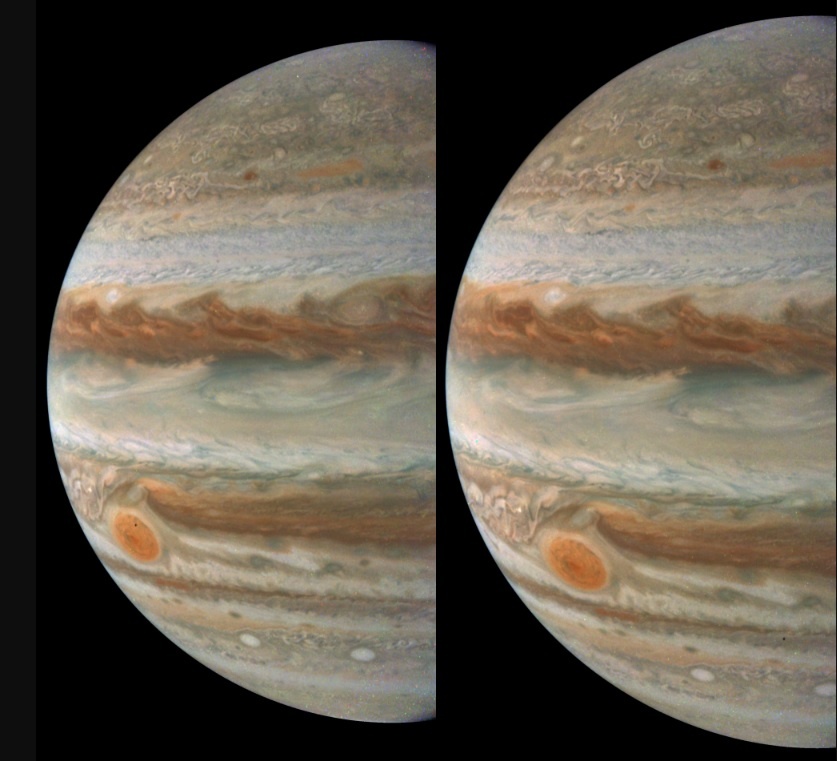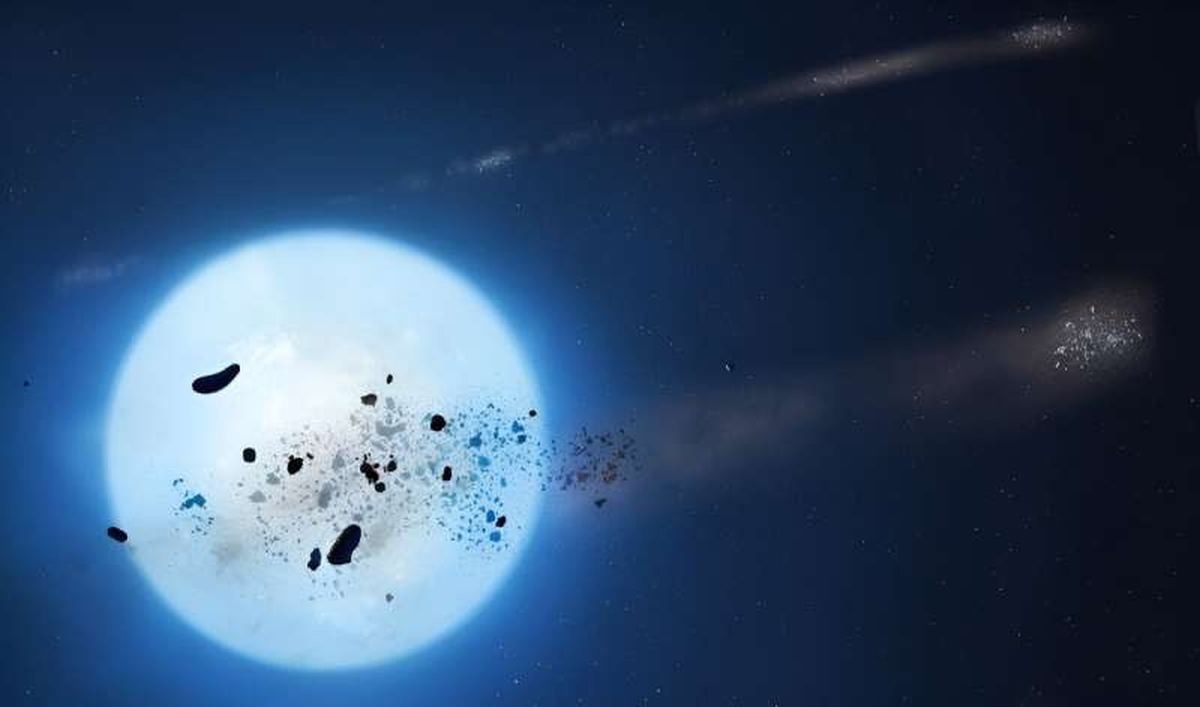Europa has always held a fascination to me. I think it’s the concept of a world with a sub-surface ocean and the possibility of life that has inspired me and many others. In September 2022, NASAs Juno spacecraft made a flyby, coming within 355 kilometres of the surface. Since the encounter, scientists have been exploring the images and have identified regions where brine may have bubbled to the surface. Other images revealed possible, previously unidentified steep-walled depressions up to 50km wide, this could be caused by a free-floating ocean!
Continue reading “Juno Reveals Secrets About Europa’s Icy Surface”Scientists Test for Quantum Gravity
The tension between quantum mechanics and relativity has long been a central split in modern-day physics. Developing a theory of quantum gravity remains one of the great outstanding challenges of the discipline. And yet, no one has yet been able to do it. But as we collect more data, it shines more light on the potential solution, even if some of that data happens to show negative results.
Continue reading “Scientists Test for Quantum Gravity”New Photos Show Jupiter’s Tiny Moon Amalthea

NASA’s Juno spacecraft spies a tiny inner moon of Jupiter, Amalthea.
It’s tiny, but it’s there. By now, we’re all used to seeing amazing photos of Jupiter courtesy of NASA’s Juno mission on a routine basis. Many of these are processed by volunteer ‘citizen scientists,’ and they show the swirling cloud-tops of Jove courtesy of the spacecraft’s JunoCam in stunning detail.
Continue reading “New Photos Show Jupiter’s Tiny Moon Amalthea”Linking Organic Molecules to Hydrothermal Vents on Enceladus

Despite the vast distance between us and Saturn’s gleaming moon Enceladus, the icy ocean moon is a prime target in our search for life. It vents water vapour and large organic molecules into space through fissures in its icy shell, which is relatively thin compared to other icy ocean moons like Jupiter’s Europa. Though still out of reach, scientific access to its ocean is not as challenging as on Europa, which has a much thicker ice shell.
Continue reading “Linking Organic Molecules to Hydrothermal Vents on Enceladus”A Star Became 1,000 Times Brighter, and Now Astronomers Know Why
![Artist’s impression of one of the two stars in the FU Orionis binary system, surrounded by an accreting disk of material. What has caused this star — and others like it — to dramatically brighten? [NASA/JPL-Caltech]](https://www.universetoday.com/wp-content/uploads/2020/02/PIA20689_fig1.jpg)
Astronomers were surprised in 1937 when a star in a binary pair suddenly brightened by 1,000 times. The pair is called FU Orionis (FU Ori), and it’s in the constellation Orion. The sudden and extreme variability of one of the stars has resisted a complete explanation, and since then, FU Orionis has become the name for other stars that exhibit similar powerful variability.
Continue reading “A Star Became 1,000 Times Brighter, and Now Astronomers Know Why”New Answers for Mars’ Methane Mystery
Planetary scientists perk up whenever methane is mentioned. Methane is produced by living things on Earth, so it’s considered to be a potential biosignature elsewhere. In recent years, MSL Curiosity detected methane coming from the surface of Gale Crater on Mars. So far, nobody’s successfully explained where it’s coming from.
NASA scientists have some new ideas.
Continue reading “New Answers for Mars’ Methane Mystery”Three of the Oldest Stars in the Universe Found Circling the Milky Way

Mention the Milky Way and most people will visualise a great big spiral galaxy billions of years old. It’s thought to be a galaxy that took shape billions of years after the Big Bang. Studies by astronomers have revealed that there are the echo’s of an earlier time around us. A team of astronomers from MIT have found three ancient stars orbiting the Milky Way’s halo. The team think these stars formed when the Universe was around a billion years old and that they were once part of a smaller galaxy that was consumed by the Milky Way.
Continue reading “Three of the Oldest Stars in the Universe Found Circling the Milky Way”A Rotating Spacecraft Would Solve So Many Problems in Spaceflight
If you watch astronauts in space then you will know how they seem to float around their spaceship. Spaceships in orbit around the Earth are in free-fall, constantly falling toward surface fo the Earth with the surface constantly falling away from it. Any occupant is also in free-fall but living like this causes muscle tone to degrade slowly. One solution is to generate artificial gravity through acceleration in particular a rotating motion. A new paper makes the case for a rotating space station and goes so far that it is achievable now.
Continue reading “A Rotating Spacecraft Would Solve So Many Problems in Spaceflight”White Dwarfs are Often Polluted With Heavier Elements. Now We Know Why

When stars exhaust their hydrogen fuel at the end of their main sequence phase, they undergo core collapse and shed their outer layers in a supernova. Whereas particularly massive stars will collapse and become black holes, stars comparable to our Sun become stellar remnants known as “white dwarfs.” These “dead stars” are extremely compact and dense, having mass comparable to a star but concentrated in a volume about the size of a planet. Despite being prevalent in our galaxy, the chemical makeup of these stellar remnants has puzzled astronomers for years.
For instance, white dwarfs consume nearby objects like comets and planetesimals, causing them to become “polluted” by trace metals and other elements. While this process is not yet well understood, it could be the key to unraveling the metal content and composition (aka. metallicity) of white dwarf stars, potentially leading to discoveries about their dynamics. In a recent paper, a team from the University of Colorado Boulder theorized that the reason white dwarf stars consume neighboring planetesimals could have to do with their formation.
Continue reading “White Dwarfs are Often Polluted With Heavier Elements. Now We Know Why”Saturn-Sized Exoplanet Isn’t Losing Mass Quickly Enough
We have discovered over 5,000 planets around other star systems. Amongst the veritable cosmic menagerie of exoplanets, it seems there is a real shortage of Neptune-sized planets close to their star. A new paper just published discusses a Saturn-sized planet close to its host star which should be experiencing mass loss, but isn’t. Studying this world offers a new insight into exoplanet formation across the Universe.
Continue reading “Saturn-Sized Exoplanet Isn’t Losing Mass Quickly Enough”




